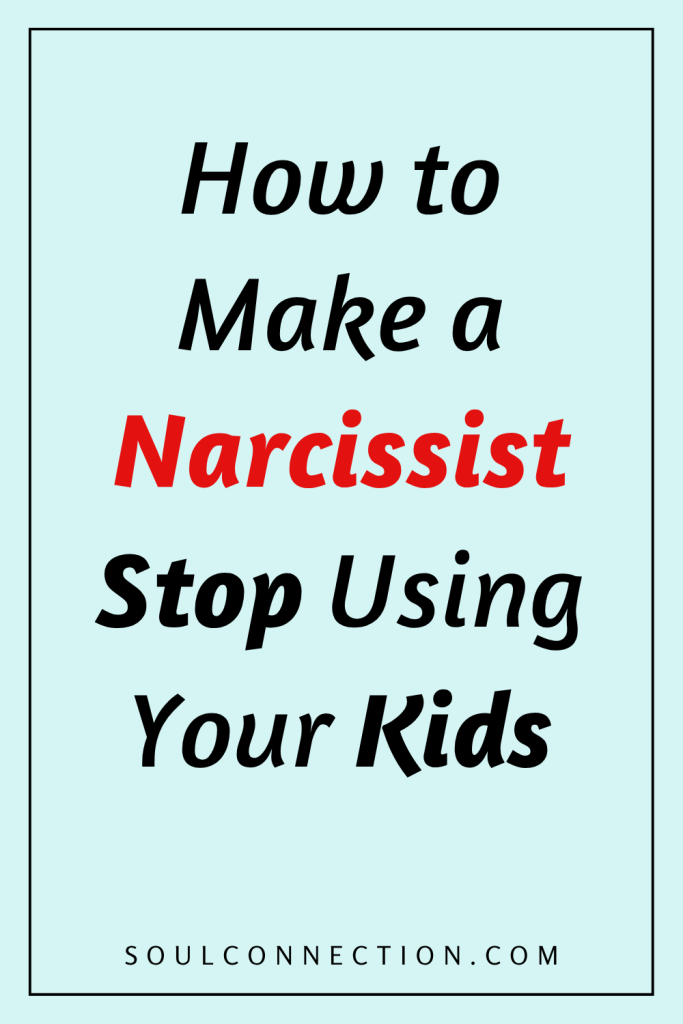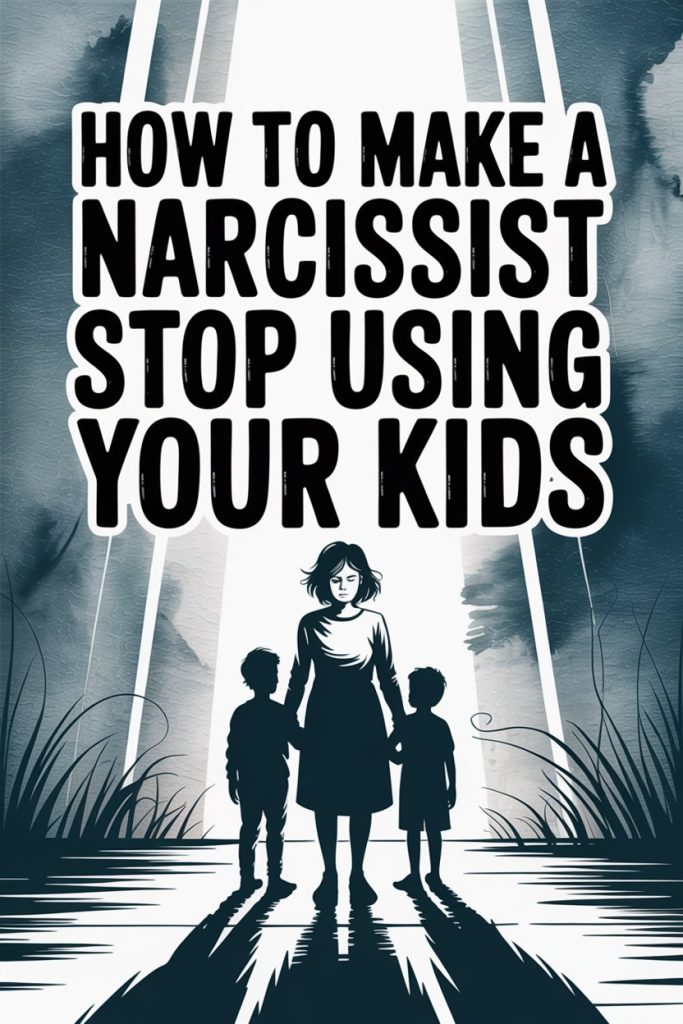Narcissists and co-parenting: peanut butter and pickles.
Separately, fine. Together? Horror show.
When your ex or partner is determined to use your children as pawns, shields, trophies, or emotional emotional-support animals, the stress can transform even the most level-headed parent into a walking eye twitch.
But it doesn’t have to be their circus—or your monkeys.
Let’s get practical (with a side of heavy sighs and an eye roll or two). Here’s how to protect your kids from being dragged into narcissistic mind games, all while keeping your sanity (mostly) intact.
Spotting the Tactics
Gaslighting, triangulation, guilt trips—narcissists have a bag of tricks that would make Houdini jealous.
They might tell your child, “Mum doesn’t want you to have fun,” or “Dad says horrible things about me,” or—my personal favourite—“If you loved me, you’d choose me over them.”
Children can’t always see manipulation for what it is. That’s your job (lucky you). Notice when your child is being told things that make them anxious, guilty, or confused.
When your son suddenly believes you don’t love him because you won’t buy another iPad, or your daughter feels responsible for the other parent’s happiness, the puppet strings are on full display.
Shielding Your Kids Without Fueling the Drama
Direct confrontation with a narcissist tends to go about as well as reasoning with a brick wall—if the brick wall were deeply offended and threw your phone into a pond. Instead, focus on your children’s emotional well-being.
Offer reassurance without trash-talking the other parent. “I’m sorry you’re feeling that way. I will always love you, no matter what.” Simple truths and unconditional love do more heavy lifting than any courtroom battle.
When your kids parrot back something manipulative, stay calm and neutral. “That must have been hard to hear. What do you think about it?”
This gives your child the power to think for themselves and models how to stay grounded in emotional storms.
Crafting Bulletproof Boundaries
If the narcissist could, they’d probably install a revolving door between your house and theirs. Boundaries? Not their favourite word.
Communicate only as much as you legally or logistically must. Grey rock technique—being boring, unemotional, and concise—can work wonders.
There’s no need to provide play-by-plays of your household or explain your choices.
When they try to rope the kids into their drama (the old “Tell your mum to respond right now!” or “Ask your dad why he never helps with your homework”), redirect. “If you have a question for me, please ask directly.”
The less you engage in their script, the less your kids are stuck in the middle.
Documenting Everything
Narcissists sometimes rewrite history so often, you’d think they were up for a Pulitzer. When in doubt, document.
Keep text messages, emails, and voice memos. Note down dates, times, and specifics when something fishy happens. If your child comes home upset after a visit, jot down what was said and how it affected them.
Evidence isn’t just for the courtroom; it’s for your peace of mind and your ability to spot patterns (and frankly, to keep your own reality intact).
Teaching Kids Critical Thinking Without Turning Them Into Little Detectives
It’s tempting to hand your child a magnifying glass and tell them to watch out for manipulation, but that’s not fair to them. Instead, nurture their ability to discern truth from fiction in gentle, age-appropriate ways.
Ask open-ended questions after they share something odd. “How did that make you feel?” or “Does that sound right to you?” Encourage them to trust their own feelings, rather than blindly siding with either parent.
You’re not training a mini Perry Mason; you’re raising a resilient human who can sniff out nonsense (eventually).
Using Parallel Parenting When Co-Parenting Fails
Co-parenting with a narcissist sometimes feels like trying to juggle flaming swords—while blindfolded—during a windstorm. If genuine cooperation is about as likely as a unicorn sighting, consider parallel parenting.
Parallel parenting means minimal direct contact, clear schedules, and strict adherence to the court order. No improvising. No passing messages through the kids.
If you must communicate, stick to written exchanges and keep it businesslike, as if you’re corresponding with your least favourite HR manager.
This reduces opportunities for manipulation and gives your children the stability of knowing what to expect in each household.
Getting Support That Doesn’t Judge
Sometimes family and friends mean well but end up sounding like a Greek chorus of unhelpful advice: “Just be the bigger person!” “Your ex isn’t really that bad,” or “Kids are resilient.” (Sure, and so are cockroaches).
Find people who truly get it. That might mean a therapist, a support group, or even online forums for parents dealing with narcissistic co-parents. Vent, strategize, and remind yourself you’re not alone.
A solid support system gives perspective, validation, and—on the really tough days—a reason to laugh instead of scream into your pillow.
Legal Tools When Emotional Tools Aren’t Enough
Some narcissists need more than a firm “no”; sometimes, they need a judge’s signature to take a hint.
If the manipulation gets extreme—badmouthing you endlessly to the kids, ignoring custodial agreements, threatening to withhold visits—it may be time for legal backup.
Consult a family lawyer who’s seen it all and isn’t shocked by creative narcissistic shenanigans. Documented patterns of manipulation can inform custody arrangements, supervised visitation, or even mandated therapy for the kids.
Stay focused on protecting your kids, not “winning” against your ex. Court battles are draining; use them as a last resort.
Keeping Your Own Head Above Water
Trying to outmaneuver a narcissist is exhausting. You might start fantasizing about running off to live with goats in the Scottish Highlands—or at the very least, hiding in the pantry with chocolate and noise-cancelling headphones.
Don’t forget your own oxygen mask. Take breaks, see friends, do things that remind you who you are outside this ongoing drama. If you’re spent, your kids will feel it, too.
Self-care isn’t selfish. It’s survival.
Teaching Your Kids About Healthy Relationships
No parent wants their child to grow up thinking that love equals manipulation, guilt-tripping, or emotional blackmail. Model healthy boundaries, open communication, and what respect looks like—even if your co-parent does the opposite.
Talk about kindness, honesty, and trust. Show them what it means to apologize, compromise, and take responsibility for their feelings.
Even if your ex is determined to write the family narrative, your example speaks volumes.
Moving Forward Without Losing Yourself
There’s no magic wand for dealing with a narcissistic co-parent. The good news? Even small steps can shift the balance.
Every time you set a boundary, protect your child’s heart, or refuse to play the game, you reclaim a little more peace.
Narcissists may never change, but your response can. And your kids—thanks to your patience, empathy, and, yes, the occasional eye roll—will learn that love doesn’t come with strings attached.
Now, go hide that last chocolate bar where only you can find it. You’ve earned it.


